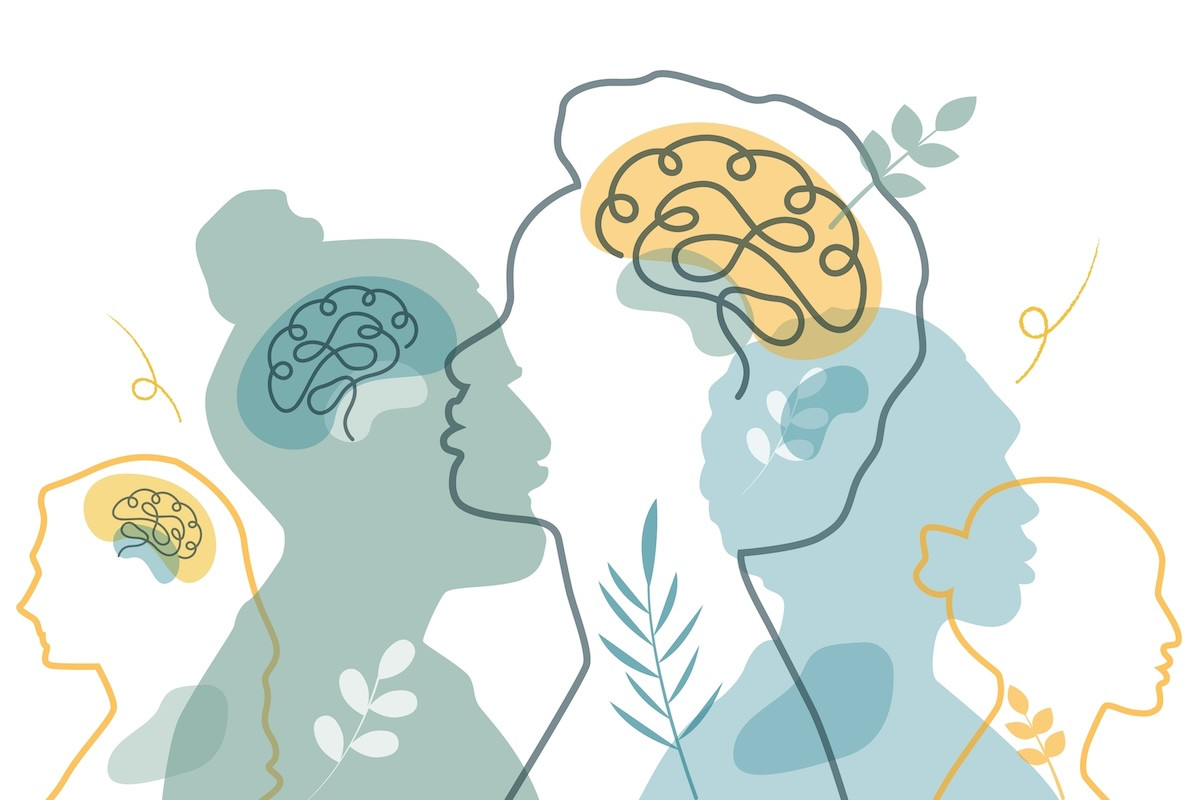Digital Therapeutics: A Game Changer in Mental Health Care
In recent years, smartphones have revolutionized the way we manage our mental health. Gone are the days when therapy and medication were the only options available for those struggling with mental health conditions. Now, with the advent of digital therapeutics, individuals have a new and innovative tool at their disposal. Digital therapeutics are not just another wellness app to track your steps or monitor your sleep patterns.
These apps have undergone rigorous scrutiny by the FDA and have been scientifically proven to aid in the management of various diseases and conditions, including mental health issues. From anxiety and depression to PTSD and OCD, digital therapeutics offer a wide range of solutions for individuals seeking alternative forms of treatment.
With approximately 1 in 5 Americans dealing with mental health issues, the need for accessible and effective treatment options has never been greater. Digital therapeutics bridge the gap between traditional healthcare services and the convenience of modern technology, providing individuals with personalized and evidence-based solutions right at their fingertips.
As these innovative apps continue to gain traction and acceptance within the medical community, they are poised to play a significant role in the future of healthcare. By empowering individuals to take control of their mental health through easy-to-use and effective tools, digital therapeutics are paving the way for a new era of personalized and accessible mental health treatment.
Addressing the Substance Use Disorder Epidemic
The public health emergency caused by COVID-19 has increased the mental health burden, worsening the Substance Use Disorder (SUD) epidemic in the US. To bridge the treatment gap, digital therapeutics like Pear Therapeutics’ reSET, the first FDA-approved digital tool for SUD, are being utilized. This app provides interactive modules to support behavior change and prevent relapses. It’s a breakthrough in digital therapeutics, helping to combat the opioid use epidemic.
Empowering PTSD Patients with Digital Therapeutics
Treating PTSD is undoubtedly one of the most challenging tasks faced by mental health professionals. The debilitating symptoms of this disorder can often feel insurmountable, leaving those affected feeling helpless and unable to move forward. However, with the advancements in digital therapeutics, a glimmer of hope has emerged for those battling PTSD.
One such groundbreaking digital therapeutic is Freespira, which has been the only FDA-approved, drug-free solution specifically designed to address PTSD symptoms. This innovative app utilizes a sensor to monitor and correct patients’ respiratory patterns, ultimately working to reduce the frequency and intensity of panic attacks and other PTSD symptoms.
By targeting the root cause of these symptoms, Freespira has proven to be a game-changer in the realm of PTSD treatment. For individuals grappling with the daily challenges of PTSD, the introduction of Freespira offers a newfound sense of hope and possibility. By providing a non-invasive and accessible treatment option, this digital therapeutic is empowering patients to take control of their mental health and reclaim their lives from the grips of PTSD.
As we continue to explore the potential of digital therapeutics in mental health care, Freespira stands as a shining example of the positive impact these technologies can have on those in need.
Benefits:
Personalized Care:
Digital therapeutics represent a revolutionary shift in the way mental health conditions are managed. By harnessing the power of technology, these tools offer a more personalized and targeted approach to treatment. Each program can be specifically designed to meet the unique needs of the individual, taking into account factors such as their symptoms, preferences, and goals.
This level of customization ensures that the treatment plan is not only more effective, but also more engaging and motivating for the individual. By tailoring the program to the individual’s needs, digital therapeutics can address specific challenges and provide specific tools and resources to help them overcome their mental health struggles. Furthermore, digital therapeutics can also offer a more convenient and accessible treatment option for individuals.
With many programs being accessible through smartphones or tablets, individuals can have access to support and guidance wherever they are and whenever they need it. This can help to bridge the gaps in traditional mental health care, providing a continuous source of support and monitoring for individuals between therapy sessions or appointments.
Overall, digital therapeutics offer a more personalized, effective, and convenient approach to managing mental health conditions. By tailoring treatment plans to the individual’s needs and providing continuous support and guidance, these tools have the potential to revolutionize the way we approach mental health care.
Accessibility:
With the rise of telehealth and virtual care options, individuals now have the ability to access these digital tools from virtually anywhere and at any time. This level of convenience and accessibility means that users can easily receive continuous care and support without having to leave the comfort of their own homes.
Whether it’s connecting with a healthcare provider for a virtual consultation, tracking and managing their health data through a mobile app, or accessing online resources and support groups, these digital tools offer a seamless and convenient way for individuals to prioritize their health and well-being.
By leveraging these technological advancements, individuals can stay proactive about their health and receive the care and support they need, no matter where they may be located.
Reducing Stigma:
Digital therapeutics offer a unique opportunity for individuals to manage their mental health conditions in a discreet and private manner. This can help to reduce the stigma often associated with seeking help for mental health issues. With digital therapeutics, individuals can access therapy, guidance, and support from the comfort and convenience of their own home.
This can be especially beneficial for those who may feel reluctant to seek traditional forms of therapy due to fear of judgment or discrimination. By providing a safe and confidential environment for individuals to address their mental health concerns, digital therapeutics can play a crucial role in breaking down barriers and promoting mental wellness for all.
Digital therapeutics, which encompass a wide range of technologies such as mobile apps, virtual reality, and wearable devices, are changing the landscape of mental health care. These innovative tools have the potential to increase access to evidence-based interventions, improve treatment outcomes, and empower individuals to take control of their mental well-being.
One of the main challenges facing digital therapeutics is ensuring that they are accessible to all individuals, regardless of their socioeconomic status or technological literacy. Many people may not have access to smartphones or reliable internet connection, hindering their ability to benefit from these interventions. Additionally, insurance coverage for digital therapeutics can be limited, making them inaccessible to those who cannot afford to pay out-of-pocket for these services.
Despite these challenges, the promise of digital therapeutics in mental health care cannot be overlooked. Studies have shown that digital interventions can be just as effective as traditional forms of therapy for certain mental health conditions, such as depression and anxiety. By harnessing the power of technology, mental health providers can reach a wider audience, provide personalized treatment plans, and track patient progress in real-time.
As digital therapeutics become more integrated into clinical practice, the full potential of these tools can be realized. With continued research and development, we can expect to see even more innovative and effective interventions being developed in the future. Ultimately, digital therapeutics have the potential to revolutionize mental health care and improve the lives of millions of individuals struggling with mental health conditions.





